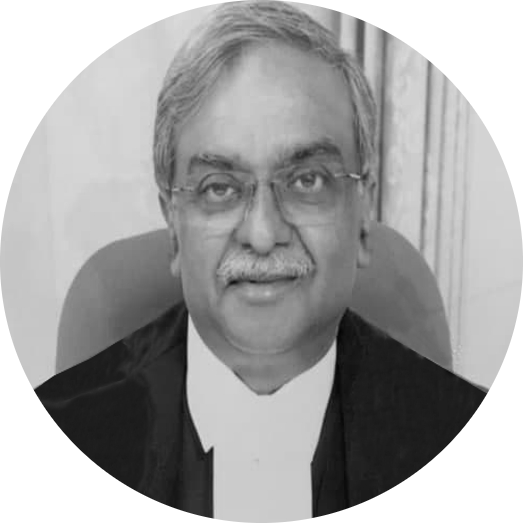Prohibiting Conversion By Marriage
State of Gujarat v Jamiat Ulama-E-Hind Gujarat & Ors
Special Leave Petition challenging the Gujarat High Court's Interim Order that upholds conversion during interfaith unions between adults in the state.
Pending
Parties
Petitioner: State of Gujarat
Lawyers: Solicitor General Tushar Mehta, Senior Advocate Manish Lavkumar, Advocate Rajat Nair, Advocate On Record Deepanwita Priyanka
Respondent: Jamiat Ulama-E-Hind Gujarat & Ors
Lawyers: Senior Advocate Kapil Sibal, Advocate On Record M.R. Shamshad, Advocate M.T.M. Hakim, Advocate Isa Hakim, Advocate Arun Joshi, Advocate Arijit Sarkar, Advocate Nabeela Jamil
Case Details
Case Number: SLP(C) 019945 - 019946 / 2021
Next Hearing:
Last Updated: March 23, 2022
Key Issues
Whether prohibiting conversion during interfaith unions between adults in Gujarat violates the Right to Life?
Whether prohibiting conversion during interfaith unions between adults in Gujarat violates the Right to Religious Expression?
Case Description
On February 14th 2022, a two-Judge Bench comprising Justices S.A. Nazeer and Krishna Murari issued notice on the Gujarat government’s Special Leave Petition challenging a Gujarat High Court Interim Order. Issued on August 19th 2021, the Order stayed specific sections of the Gujarat Freedom of Religion (Amendment) Act 2021. In doing so, it upheld consensual interfaith unions between adults in the state. The matter is currently pending before the SC.
Amidst much debate from the Opposition, the Gujarat Freedom of Religion (Amendment) Act 2021 was passed by the Gujarat Assembly with a majority vote on April 1st 2021. The Amendments bring marriage into the purview of the Gujarat Freedom of Religion Act, 2003. Section 3 of the 2021 Act now prohibits fraudulent conversions by marriage, with the various offences under the Act listed as cognizable and non-bailable in Section 7.
The case complicates the expression of multiple rights by interfaith couples in India: such as the right to freely practice and propagate one’s religion and the right to marry a person of one’s choice.
The Act is similar to laws passed of late by Uttar Pradesh, Madhya Pradesh, and Uttarakhand to counter what is known as ‘love jihad’. The term is often referred to by Hindutva parties when a Hindu woman is ‘forced’ to convert to Islam either before or after marrying a Muslim man. The argument is that unchecked conversion propagates a specific religion at the cost of a person’s liberty. The phenomenon is alluded to in the Act’s Statement of Object and Reasons as “an emerging trend in which women are lured to marriage for the purpose of conversion.”
It is perhaps for this reason that the methods of forceful conversion have shifted with the Amendments. In section 2(a) of the 2003 Act, allurement to convert was described by the offer of gifts or material gratifications. Under the 2021 Act, the promise of offering “better lifestyle, divine blessings or otherwise” constitutes a new type of allurement. Finally, in Section 4B, the Act further strikes down conversion as a result of marriage, stating that such unions “shall be declared void by the Family Court.”
The 2021 Act also widens the scope of who can be convicted of the offence of conversion by marriage, and who can accuse them of such a crime. The newly inserted Section 3A allows any relative by “blood, marriage or adoption” to file an FIR against a person committing an offence under the Act. Section 6(A) states that the burden of proving that the conversion was not forceful or fraudulent lies on the accused. Sections 4A and 4C penalise individuals and organisations convicted of forcing conversion by marriage or abetting it.
After the Bill was passed on April 1st 2021, Jamiat Ulama-E-Hind, an Islamic cultural organization following the Deobandi school of thought, filed a writ petition before the Gujarat High Court challenging the amendments. The petition argued that the Bill violated Articles 14, 21, and 25 of the Constitution of India, 1950.
The Court first heard the challenges to the Bill on August 5th 2021. The Bench comprised erstwhile Chief Justice Vikram Nath (now a Judge at the Supreme Court) and Justice Biren Vaishnav.
On August 19th 2021, the Gujarat High Court passed an Interim Order protecting consensual interfaith marriages entered into by adults. It raised concerns that any interfaith marriage followed by conversion would be deemed unlawful and penalised. This may also affect the perception of the ‘common man’—who may believe that all conversions as a result of marriage are forced and unlawful. Citing Shafin Jahan v Ashokan K.M., the Court further noted that the right to marry freely was enshrined in Article 21. By placing the burden of proof on the accused, the Act severely jeopardised interfaith unions. It ordered that pending further hearings, Sections 3, 3A, 4A, 4B, 4C, 5, 6, and 6A would not apply to consensual adult interfaith marriages.
This is the order the Government of Gujarat challenged at the SC through a Special Leave Petition. It remains to be seen how the Court will address questions of fundamental rights to religion and liberty in the forthcoming proceedings.
